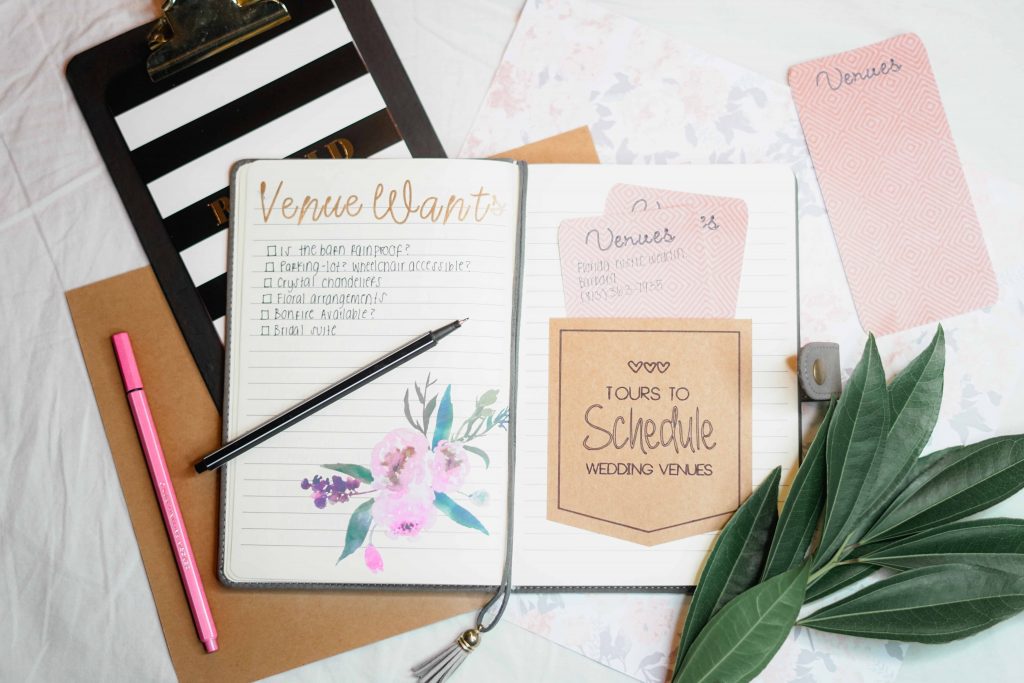To build a successful career in the field of event planning, one needs a range of skills and abilities.
Event planners or event coordinators have multiple responsibilities that include a lot more than just planning.
They have to handle research, logistics, and marketing.
Further below, you will learn more about the skills and responsibilities event planners have.
Article Table of Contents
Event Planner Job Overview
From the initial idea to the cleaning after, an event planner ensures that every part of the event is taken care of.
Typically, event managers work with a team.
First off, they meet with a client and discuss the concept, requirements, and budget.
Event planning is very active and requires a lot of aspects before and during the event to be taken care of.
The team will find a location, hire entertainers, speakers, organize transportation, and handle crises that can arise in the process.
What Does an Event Planner Do
Whether you want to build a career as a party planner or corporate event planner, you will find out that the main points are similar in the two jobs.
The primary responsibility is organizing the event such as a party, reception, wedding, business meeting, exhibition, or a trade show.
Responsibilities
There are multiple responsibilities that event planners face which depend on the type of event they are organizing.
Below, we have gathered the responsibilities of event planners common for all fields:
- Plan, produce, and create various events and manage all the delivery meeting the deadline.
- Manage event planning aspects meeting the budget and deadline demands.
- Establish relations with venues, vendors, and other contacts to create and implement logistical and creative aspects of the events.
- Find out the requirements and expectations of the clients for the events and how to meet them.
- Research the market and negotiate contracts with providers and other partners.
- Provide constant feedback to clients.
- Come up with imaginative and original ideas for the events and their implementation.
- Organize settings, locations, the list of attendants, and specific requirements for logistics.
- Coordinate staff and stay in touch with the marketing and PR departments to promote the events.
- Stay proactive and come up with solutions to emergency issues should they arise on the day of the event.
- Do research before and after the event and provide reports on activity to clients.
Salary and Bonuses
The median salary of an event planner is $48,290, or $23 per hour.
However, the salary can vary depending on some factors:
- Whether the position is internal in a company.
- Whether planners work for a specific company.
- Whether planners work as freelancers.
According to the BLS, the top 10% of event planners make over $80,000.
The lowest salary in the industry is $25,000.
Essential Skills
The field of event planning is highly competitive, so there are some diplomas and certifications that can help you boost your credibility and gain more useful skills.
The certifications include:
- The Certified Meeting Professional (CMP) offered by the Events Industry Council.
- The Certified Government Meeting Professional (CGMP).
Prospective event planners or recent graduates can gain experience through an internship in the event planning industry.
Typically, they will receive an opportunity to try various aspects of event planning to get an understanding of the industry and the future job.
Interpersonal skills:
An event planner should be a people person.
They need excellent written and verbal communication skills.
They should also be able to work and stay calm under pressure.
Problem-solving skills and the ability to compromise are essential as well.
Problem-solving skills:
Successful event planners should be able to handle stress and problems and be quick on their feet.
They should be able to come up with creative solutions and can never take no for an answer.
Communication skills:
Event managers work with a really large number of people.
They communicate with clients, suppliers, teams, and should ensure great customer service for attendees.
Negotiation skills:
Event planners should stay in touch with clients before, during, and after the event.
They should also conduct research and negotiate contracts with providers as well as take care of logistics.
Management skills:
Event planners should have excellent time management skills to meet deadlines.
They should also be highly stress-tolerant and organized.
How to Become an Event Planner
First of all, aspiring event planners need a bachelor’s degree.
But except for the academic qualifications, employers require extensive experience in the event planning industry.
So, you need experience in the field since the job requires someone who can act fast and find solutions to unexpected problems quickly.
Qualifications and Training
The primary qualifications event planners should have include communication, interpersonal skills, business management, and personal work ethic.
Successful event planners should be able to multitask, which is useful for good management of assignments and projects.
Event planners need excellent work ethic and respect for other people.
They should also be able to meet tight deadlines.
General qualifications
- Proven experience as an event planner.
- Superior organizational skills.
- Strong communication and interpersonal skills.
- Decision-making skills.
Preferred qualifications
- Bachelor’s degree in Hospitality, marketing or related areas.
- Proficiency with the Event Management System.
- Proven experience in Public Relations.
- Flexibility to travel as needed.
Experience
To enter the field, you must have a bachelor’s degree and some experience in a related field.
Employers usually seek candidates with experience in hospitality management.
Additionally, at least three years of experience in administrative management can be extremely useful.
Having at least one year of managing and coordinating special events can improve your chances of employment as well.
Working Hours
The schedule of an event planner can be hectic, and the hours will depend on the specific project.
Event planners should be available almost all the time, especially as the event dates are approaching.
They may have to handle unexpected calls, urgent issues, midnight discussions with clients, etc.
Career Outlook
The field of event management is highly competitive, so the promotion can depend on different factors.
For instance, the organization you work for, previous accomplishments, as well as the ability to use theoretical knowledge to solve practical problems.
There is no specific path for advancement, and the career ladder depends on the type of organization you work for.
Generally, you can get promoted from an assistant to a team leader, and start to manage a bigger team.
With experience, you will get more responsibilities like managing larger events as well as get bigger figures when it comes to budget and attendees.
Event Management FAQs
How Many Hours Does an Event Manager Work
The schedule of event planners can be hectic, especially right before the event.
The workweek usually takes more than 40 hours and doesn’t have a well-established program.
Work on weekends is also common.
Can You Become an Event Planner Without a Degree
This job requires a good level of education since you will have to work with different people and tools to fulfill the job.
However, with more experience over qualifications, you can prove yourself in this field.
Do Event Planners Travel Much
Event planning includes attending the events to manage them on location.
Depending on your company and field, events can take place in different parts of the country or even around the world.
Event planners have to travel to attend them.
Where Do Event Planners Work
Event planners may have to work in the offices, conventions centers, onsite at hotels where the events take place, depending on the stage of the event.
They also meet with clients to discuss the progress of the event.
How Do Event Planners Get Paid
Commonly, the price is based on fee-for-service, meaning the total cost to the client.
Prices also include labor, materials, and supplies needed to develop the event, and planners will charge about 10-20% of the total cost of the event.
Conclusion
Planning events may seem like a dream job for people dreaming about endless meetings and parties with celebrities.
Actually, this job includes a lot of responsibilities and high levels of stress and pressure.
So, this profession is for highly responsible and organized people.

